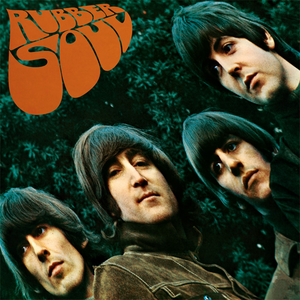Published on Dec 5, 2001
I never joined the “cult of the Beatles” in my musical
explorations like so many people over the years. Oh, I like the
Beatles, and even own some of their albums in the Pierce Memorial
Archives. But I never raised them up to god-like status – quite
possibly because I didn’t live through the whole Beatlemania scene.
(By the time I was born, the Fab Four had been officially separated
just a few months.)
That said, I think that anyone who picks up
Rubber Soul, the Beatles’ 1965 release, recognizes that this
album is something very special. Coming off their virtual
conquering of America, not to mention several other countries,
Rubber Soul was the first disc that seemed to give the
Beatles room to experiment musically. If anything, this album is
the spark that would set off the explosion that was
Sgt.Pepper’s Lonely Hearts Club Band or the untitled “White
Album”.
Believe it or not, this is one Beatles album I
don’t own; I happened to have checked it out of my local
library when word came that George Harrison had passed away. Yet
one might be surprised when they first play this disc that they’re
more familiar with the bulk of the material than they may have
expected. If, like me, you’re a child of the ’70s and have grown up
listening to either classic rock or oldies stations on the radio,
you may not recognize Beatles songs like “The Word,” “Wait” or “Run
For Your Life” by the titles, but the moment these songs start
playing, the light bulb of recognition turns on. I was surprised,
albeit pleasantly, to find an air of familiarity with this album on
first listen.
I spoke of experimentatin earlier; while the Beatles didn’t
totally eschew the two-minute pop ditties on
Rubber Soul, they used this album to prove they could write
songs in other flavors as well. And, in a sense, it has to make you
wonder in awe how much these four mop-tops had grown as musicians
in just a few years. Harrison introduced the sitar to a whole
generation (long before Ravi Shankar’s set at Woodstock) by using
it as – egads! – a lead instrument on “Norweigian Wood (This Bird
Has Flown),” a strange combination that is absolutely magical.
Long-time readers may know that I don’t like it when classic rock
radio takes a good song and kills it with overplay. Somehow,
though, I never get tired of hearing the magic that is this
song.
We could spend the entire review talking about the best-known
songs from
Rubber Soul – “Drive My Car,” “Michelle,” “Nowhere Man”
(which I can’t picture anymore without the ugly little animated guy
from
Yellow Submarine dancing in my mind – yeech) – but the song
that sticks out the most for me is the surprisingly poignant “In My
Life”. In this all-too-brief span of just under two-and-a-half
minutes, John Lennon and Paul McCartney wrap up a lifetime’s worth
of reminiscing and maturity in a manner that is rarely achieved in
any art form. I will boldly go out on a limb and declare this to be
the best Beatles song ever written.
Yet
Rubber Soul is actually more than the traditional radio
fodder. It is a surprising snapshot of the artists in transition.
If you listen closely, you can hear the shift in musical style that
Harrison was soon to take up in his track “If I Needed Someone”.
(It’s not as evident, though, in “Think For Yourself”.) You can
hear Lennon and McCartney trying to push their own limits on tracks
like “I’m Looking Through You” and “Michelle,” both challenging the
pundits who thought that the Fab Four could only write power-pop
ditties. Songs like “You Won’t See Me” might surprise you, showing
themselves to be old friends rather than nuggets waiting to be
unearthed in your musical quest.
There is but one stumbling point on
Rubber Soul – namely, the sole contribution that drummer
Ringo Starr makes with “What Goes On”. This has nothing to do with
Starr’s songwriting ability or vocal talents; if anything, blame on
this track is shared with Lennon and McCartney, who also wrote the
song. Simply put, it’s not the strongest material on the disc, nor
is it the strongest material ever to come from these songwriters’
pens. Plus, as noted here before, Starr was more competent of a
singer and songwriter than many people are willing to give him
credit for – which is possibly why I find myself disappointed with
this effort.
I admitted before that I presently don’t own
Rubber Soul. Something tells me that’s gonna change real
soon. I’ve been notoriously hard on many Beatles albums on these
pages – something which has, surprisingly, earned me very few death
threats. However, in the case of
Rubber Soul, I’d dare say that if you can own only one
Beatles album, if this one isn’t the disc you’d choose, you’d
better give it strong consideration.
